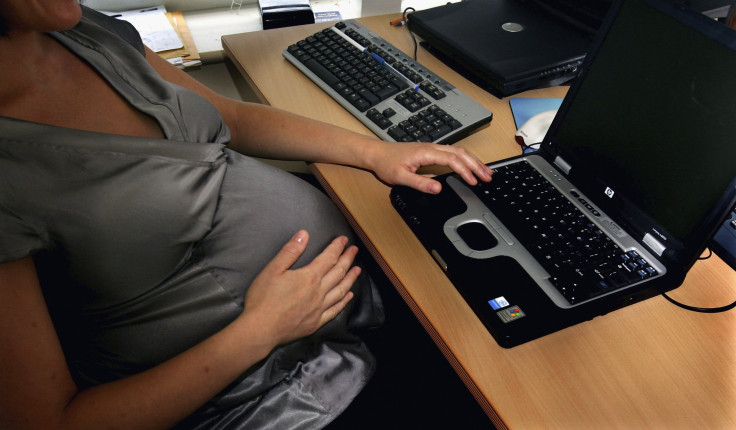What Is Superfetation? California Surrogate Mother Unknowingly Gives Birth To Biological Son

A surrogate in California, who gave birth to twin boys for a Chinese couple in December 2016, later learned from a DNA test that one of the twins was her biological child. In February, she was reunited with him, but not after a harrowing ordeal.
Jessica Allen, 31, already had two other children with her partner, Wardell Jasper, 34, prior to her decision of becoming a gestational surrogate for a couple, who opted for an American surrogate because surrogacy was not legal in their country.
A monthly payout of $30,000 was agreed in exchange for Allen carrying the couple’s child. After Allen underwent in vitro fertilization, the doctor confirmed she had conceived, and she followed all the rules meant to be followed by a surrogate under a contract. One of those rules was abstinence from sexual intercourse lest protection was used.
A few months later, the doctors informed Allen and the Chinese couple that she was expecting twins — news that made the Chinese couple ecstatic. The monthly installments that Allen received were increased by $5,000, which came as a good news for Allen, who was looking to save up for a new house.
On Dec. 12, the day of the delivery, Allen's employers violated a key condition in the contract, which stated that Allen was allowed to see the twins for an hour after their birth before they were moved out of the maternity unit. “I hadn’t even gotten a glimpse of the twins when they were removed from my womb and taken to the neonatal intensive care unit,” Allen said.
The first time she saw the twins was when the mother brought a picture of the babies for her the following day. It was then that she saw a distinct difference between their appearances. One of them looked like an Asian child, while the other one looked like a mix of Caucasian and African-American. (Allen is Caucasian and Jasper is African-American.)
Despite suspecting the second child was her biological child, Allen could do little, other than waiting for a month before she could conduct DNA tests with the permission of the couple. It was proved thereafter that the second child was Allen’s biological son — a result of something called “superfetation.” However, it is not clear in the reports how that could happen.
According to health site Medicine Net, superfetation is “an extremely rare situation in which a pregnant woman becomes pregnant a second time with another (younger) fetus. Superfetation is characterized by the fertilization and the implantation of a second oocyte in a uterus already containing the product of a previous conception.”
The process of superfetation has also been differentiated from “twinning” or “multiple gestation,” as it involves the conception of an additional fetus during an established pregnancy. Although the two fetuses growing inside a mother’s womb, under this condition, often have different gestational ages and due dates, the twins that Allen was carrying, were delivered the same day.
This gave rise to a complicated legal battle. Allen made getting back her biological child a priority, challenging surrogacy laws in her state that did not normally allow for an exception in the case of superfetation.
“I was heartbroken knowing I carried a baby I didn't know was mine and that he was taken from me without my knowledge and was in the arms of other people where he did not belong," Allen told the Independent.
The Chinese couple did not want to keep Allen’s child, Max, which they were legally required to be responsible for and demanded compensation in return.
Finally, on Feb. 5, the court decided to hand Allen’s child back to her and drop all compensation claims against her. “It’s now been nearly nine months since we got Malachi (the child’s new name after being named Max), and he is doing well,” Allen said. “He’s beautiful. He’s healthy and his personality is hilarious. He loves his big brothers, is learning to walk and is starting to speak.”
While superfetation is extremely rare, it has been reported throughout the world. The most recently reported example was a woman in Brisbane, Australia, who conceived two baby girls 10 days apart.
Perhaps the most unusual case was in 2009, when Julia Grovenburg of Fort Smith, Arkansas, gave birth to daughter Jillian on Dec. 24, and son Hudson on Jan. 10, 2010.
© Copyright IBTimes 2025. All rights reserved.






















